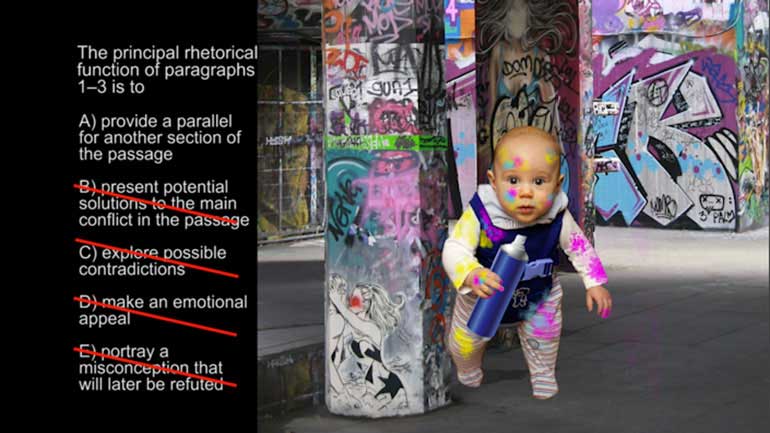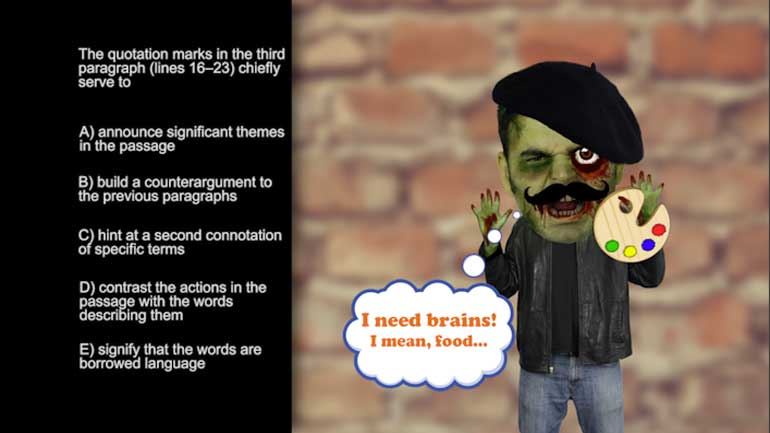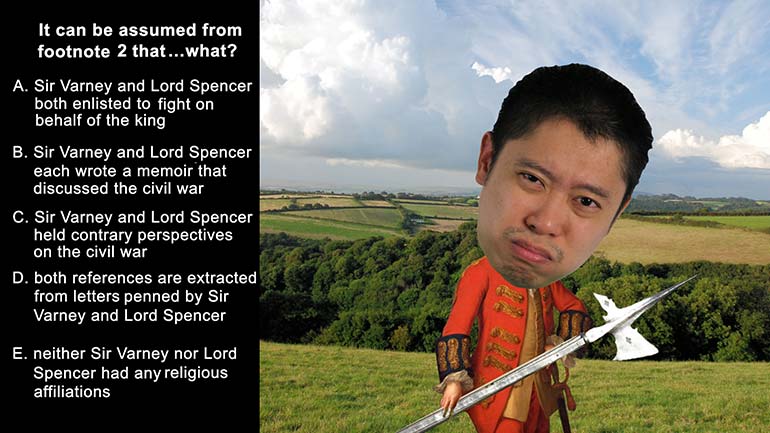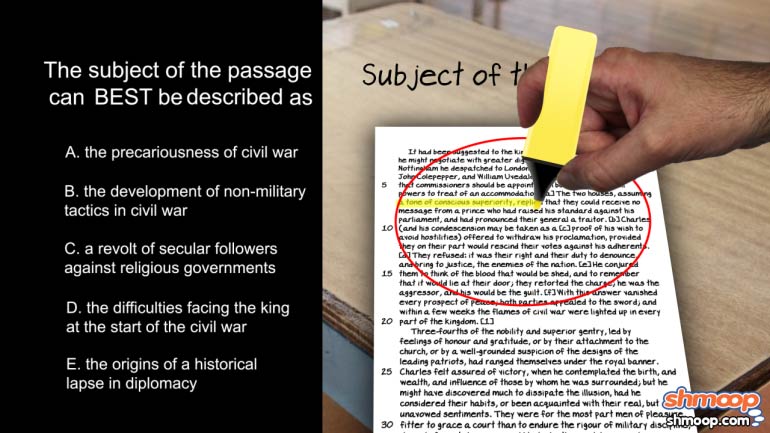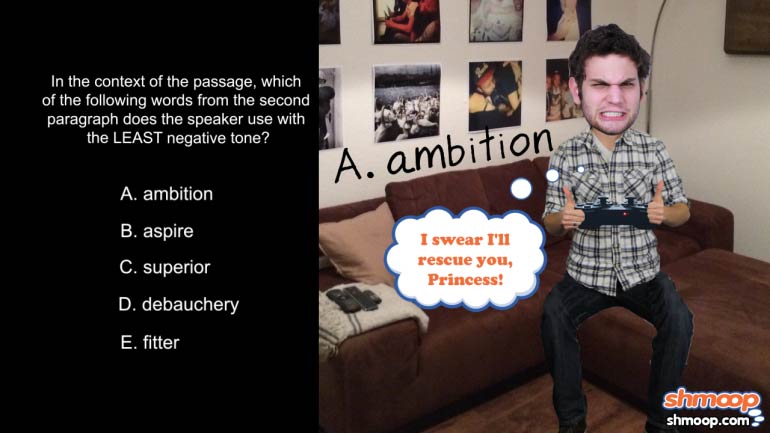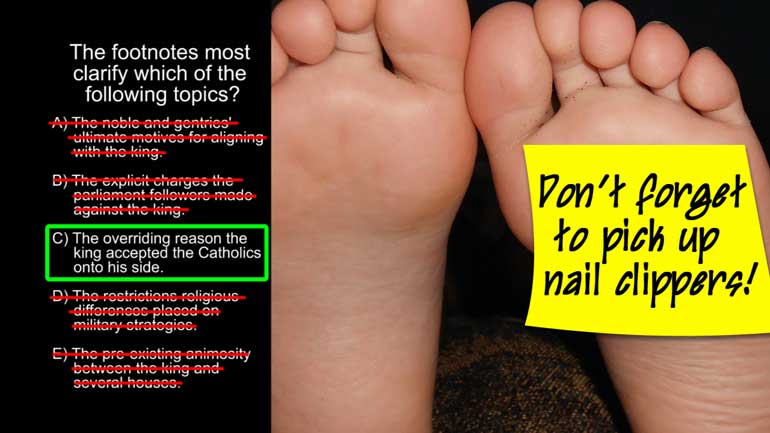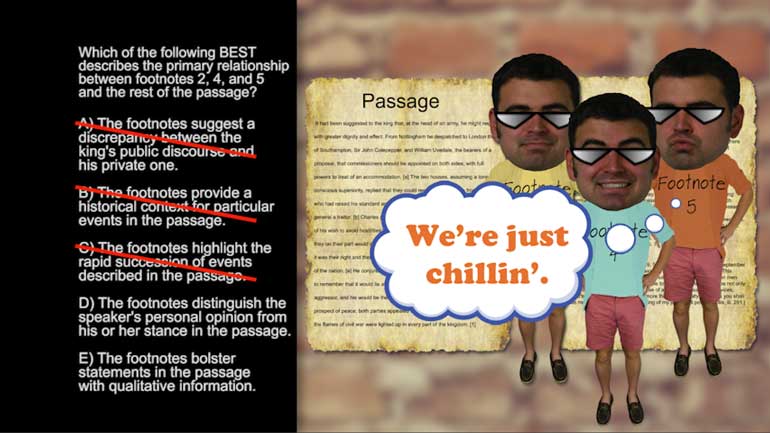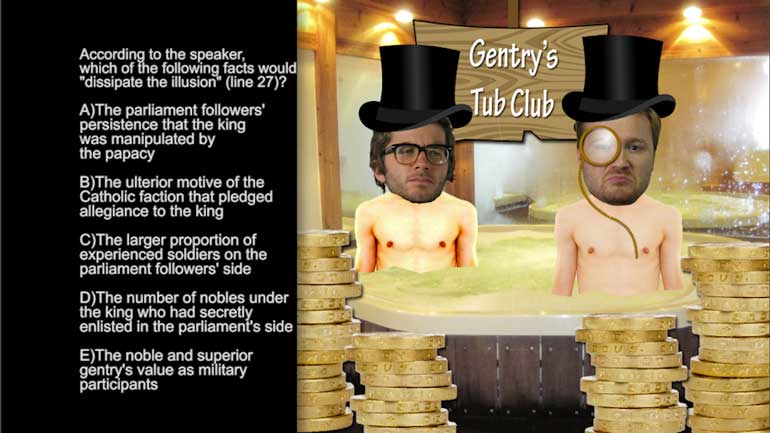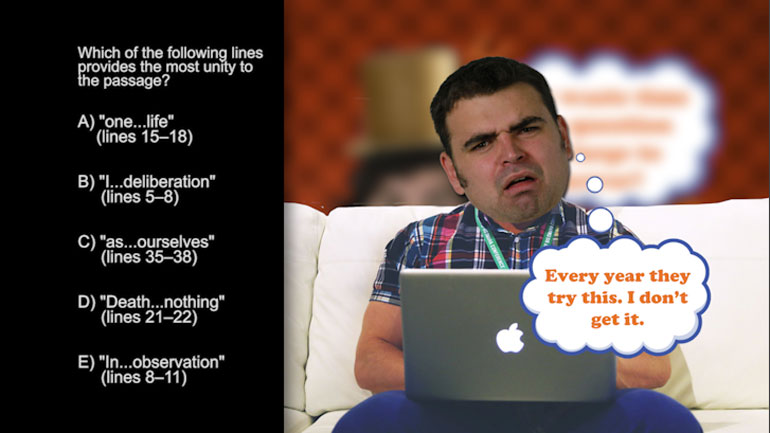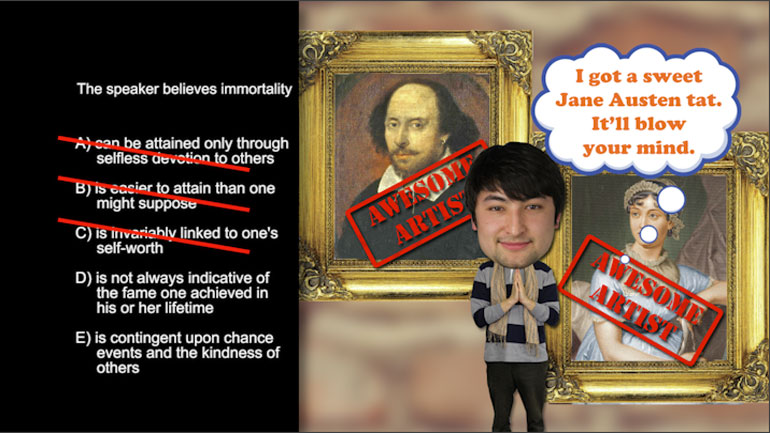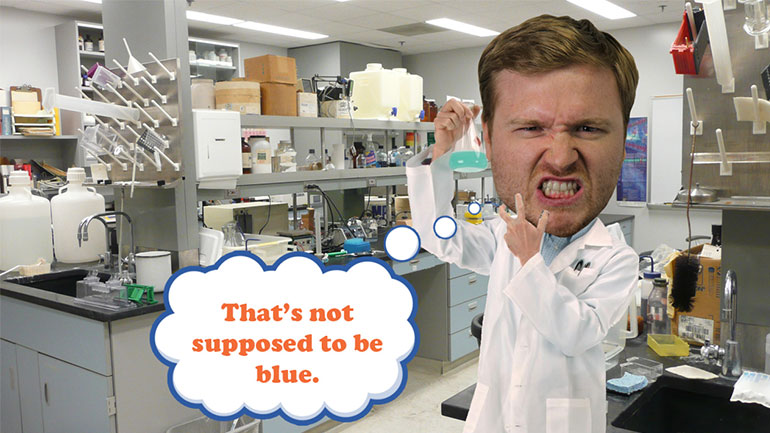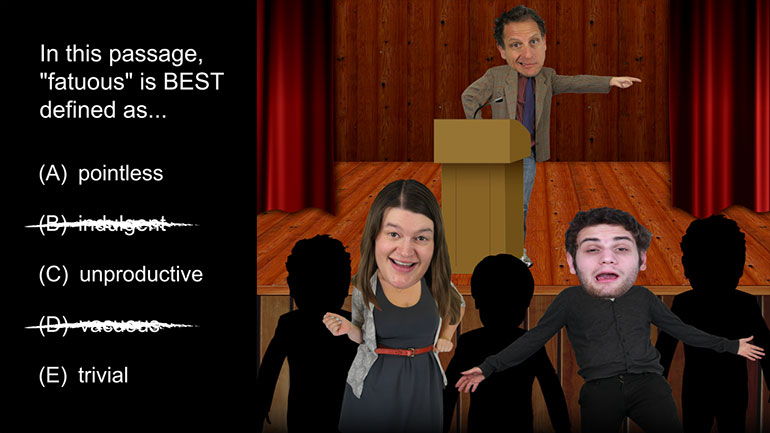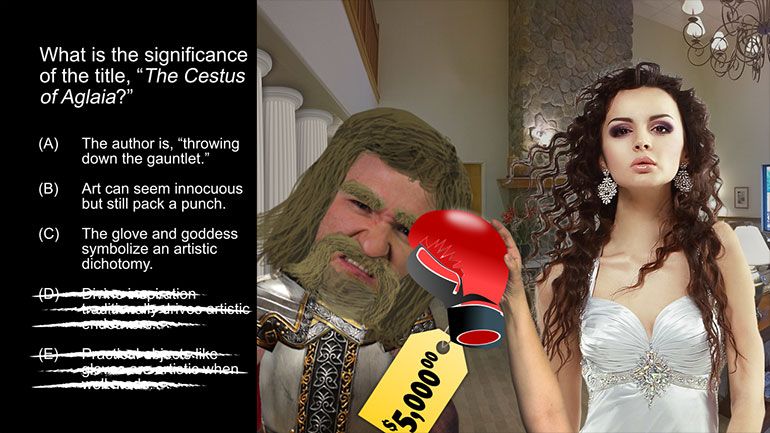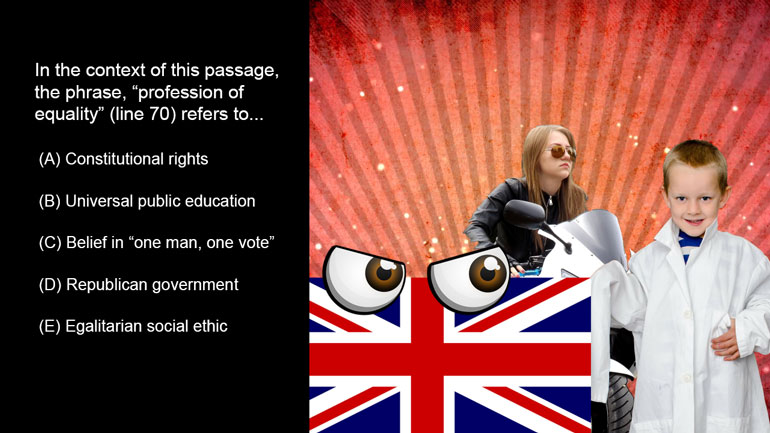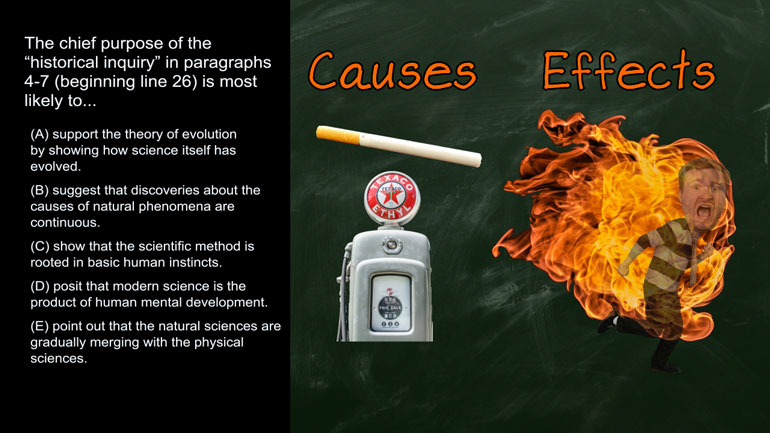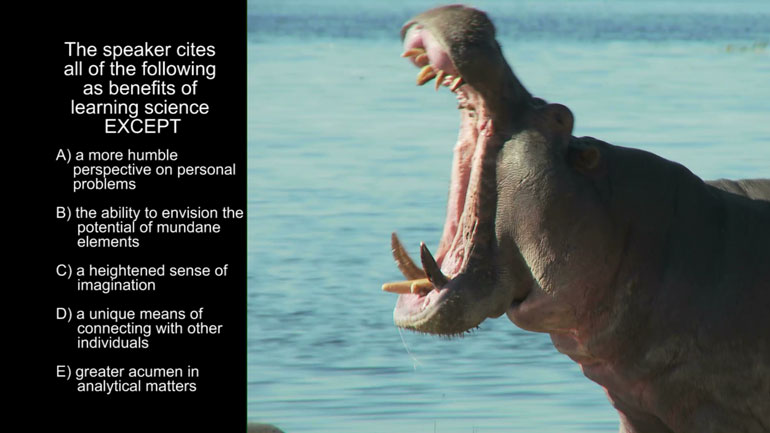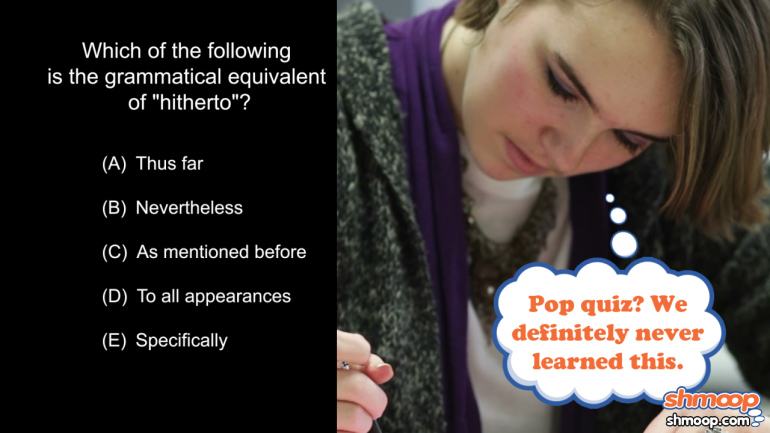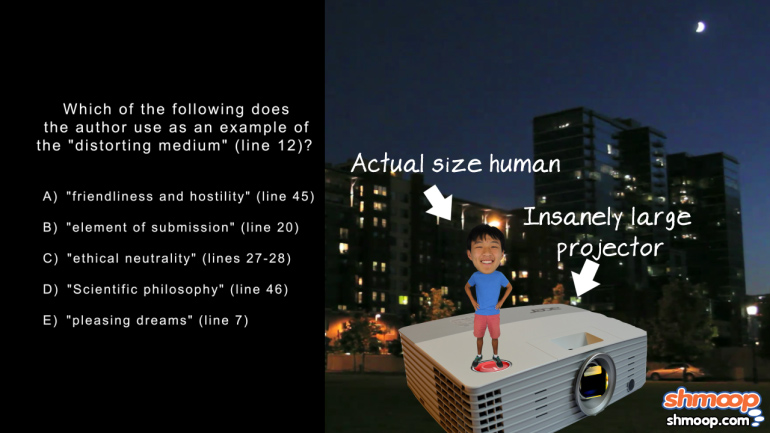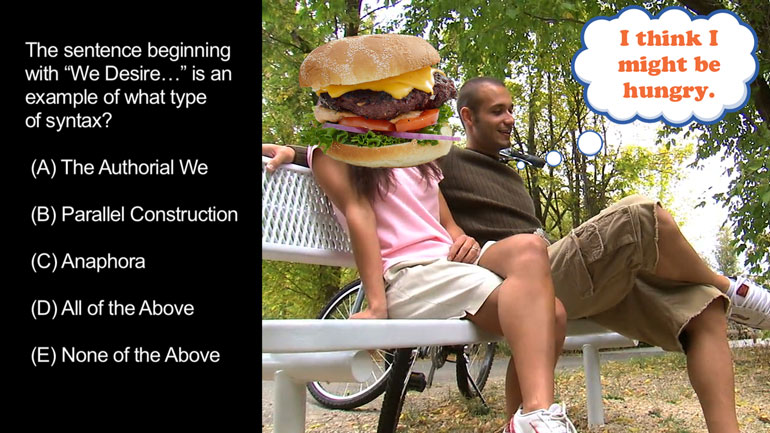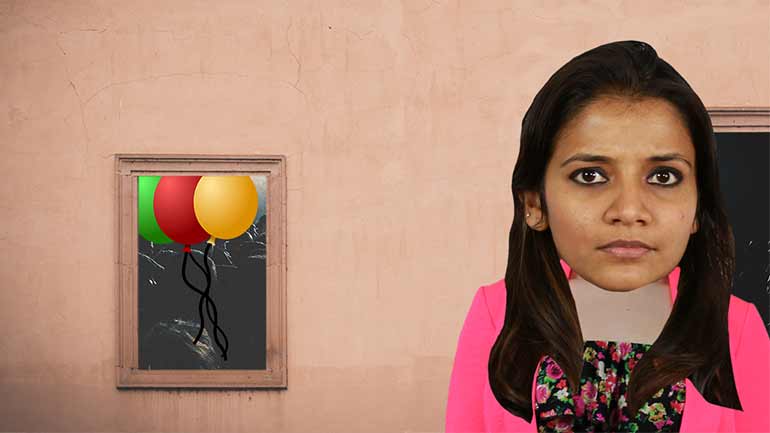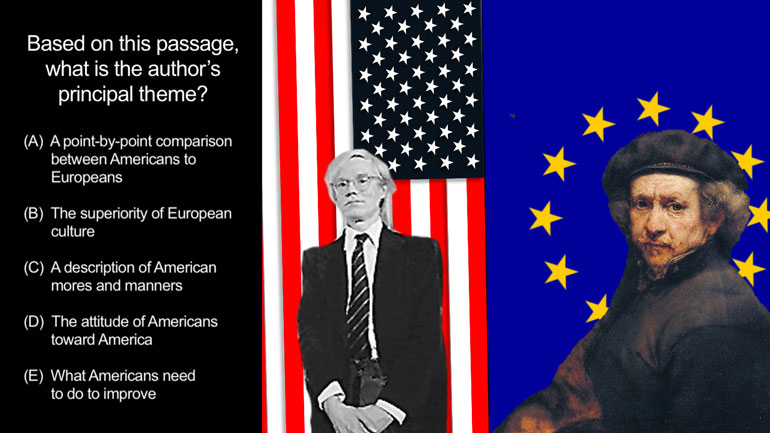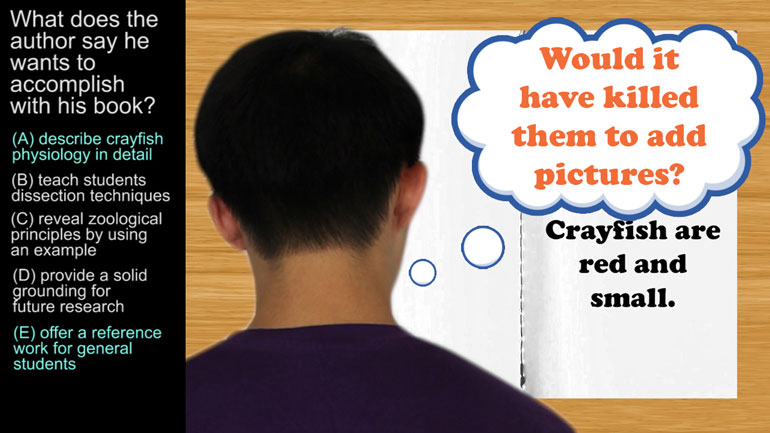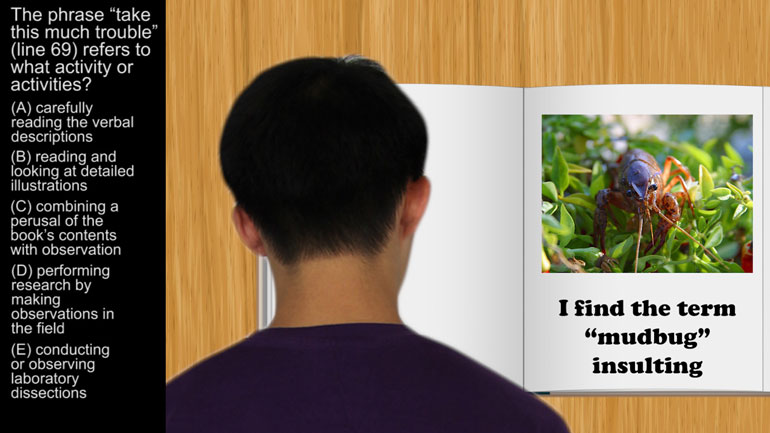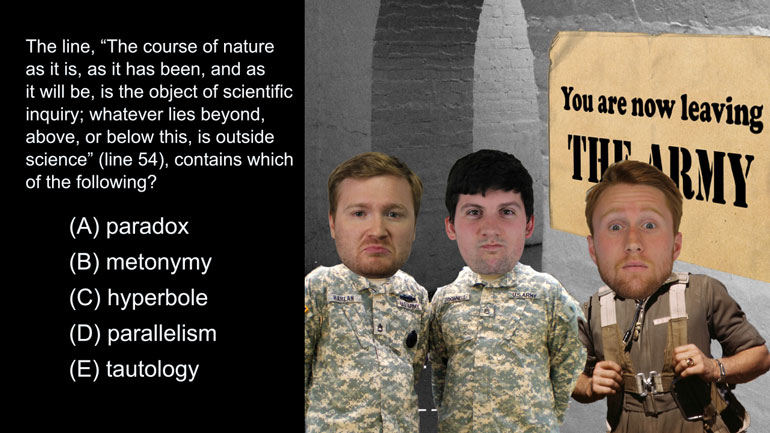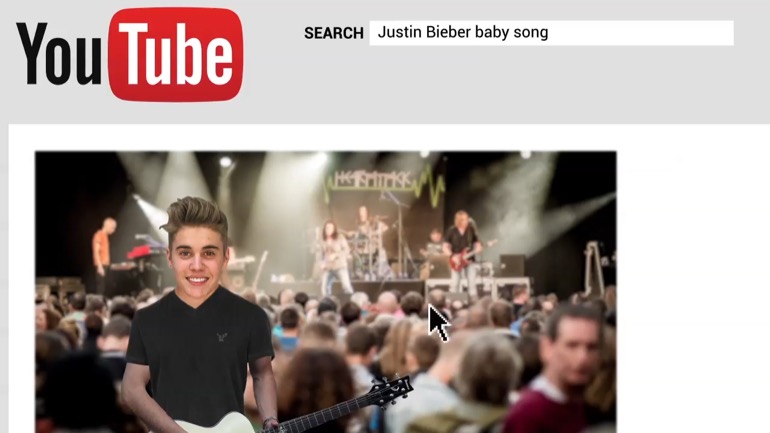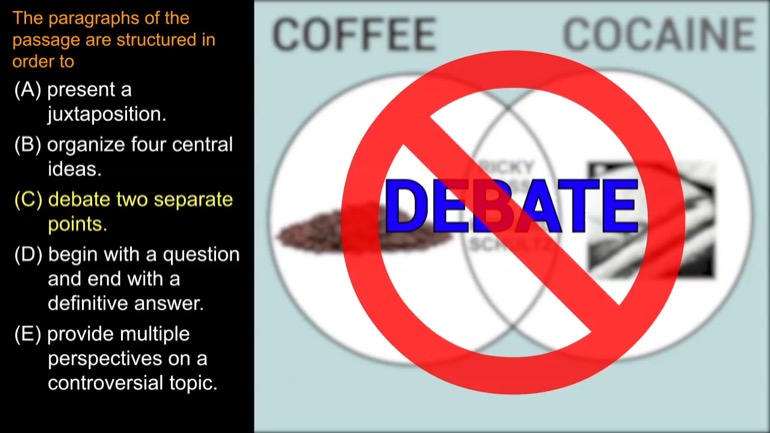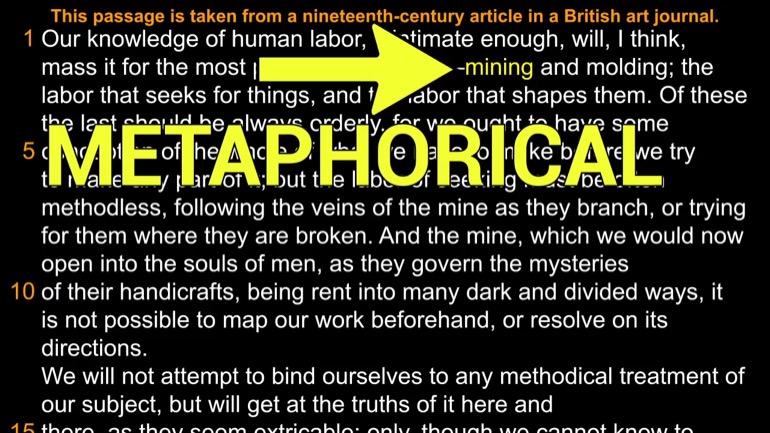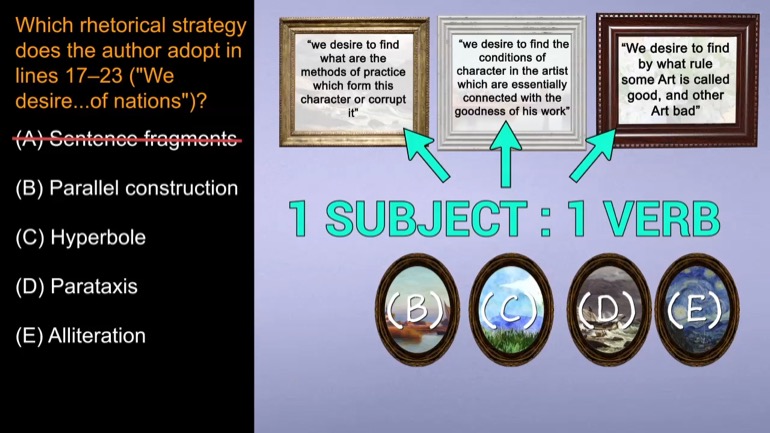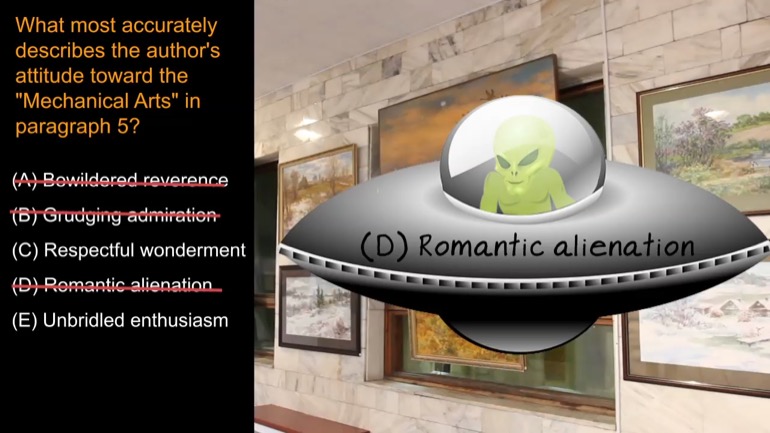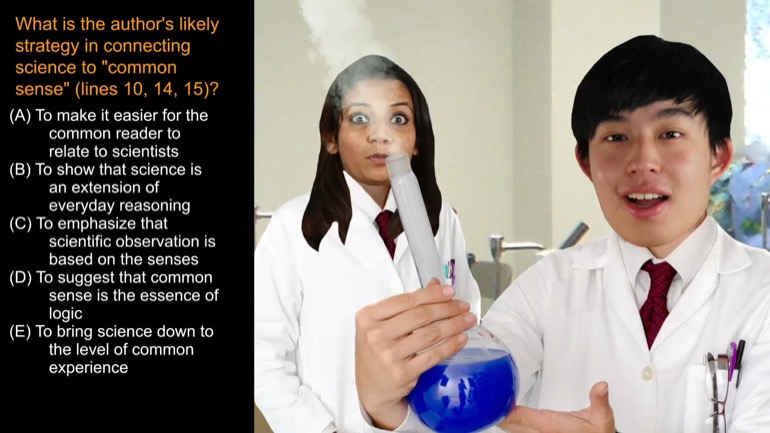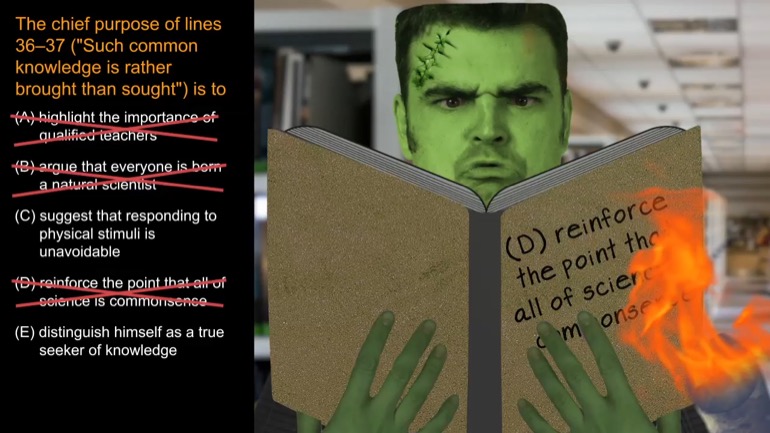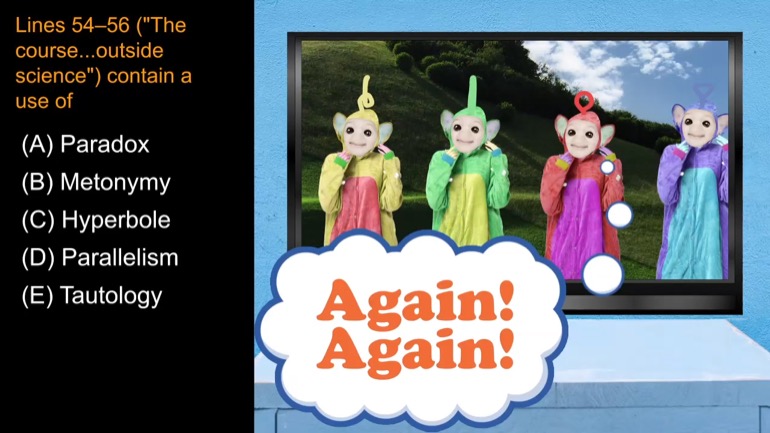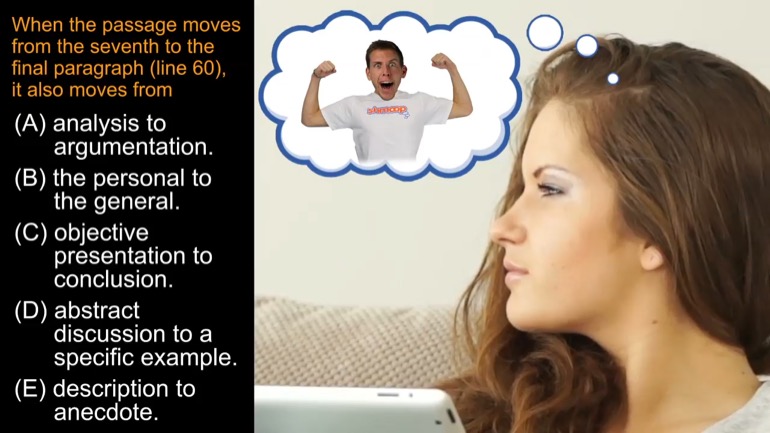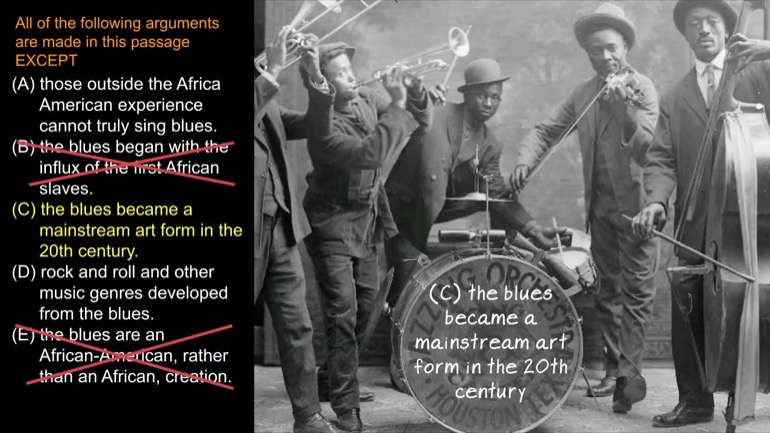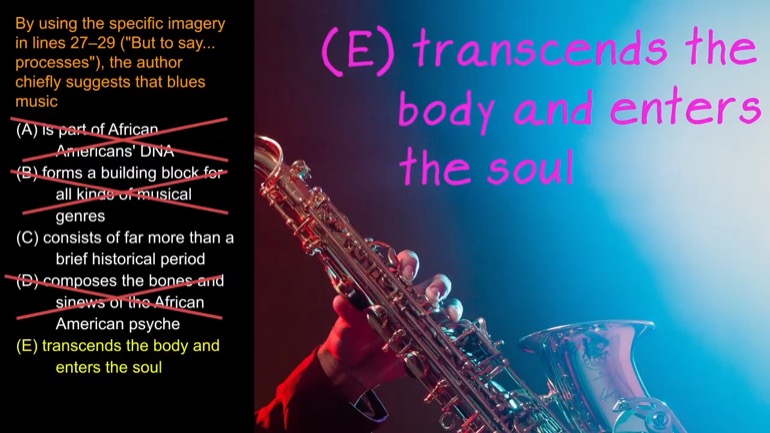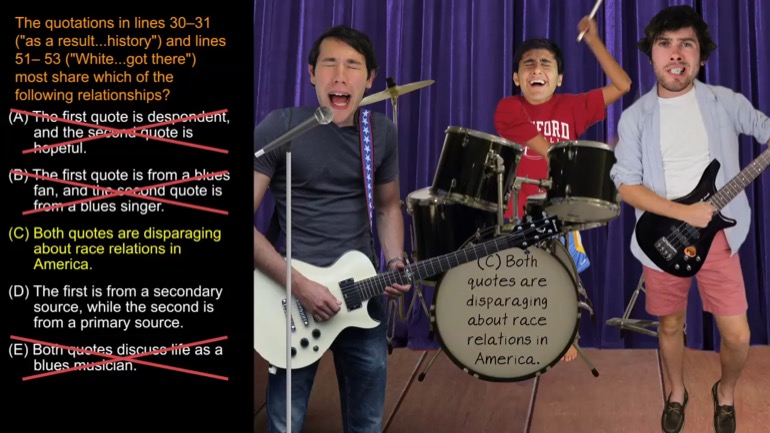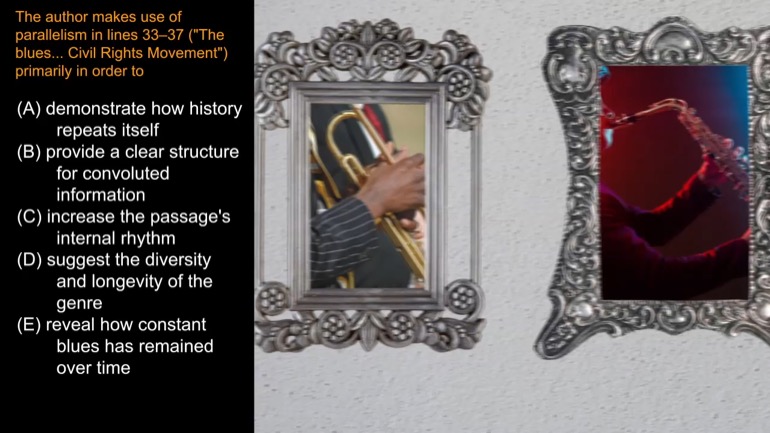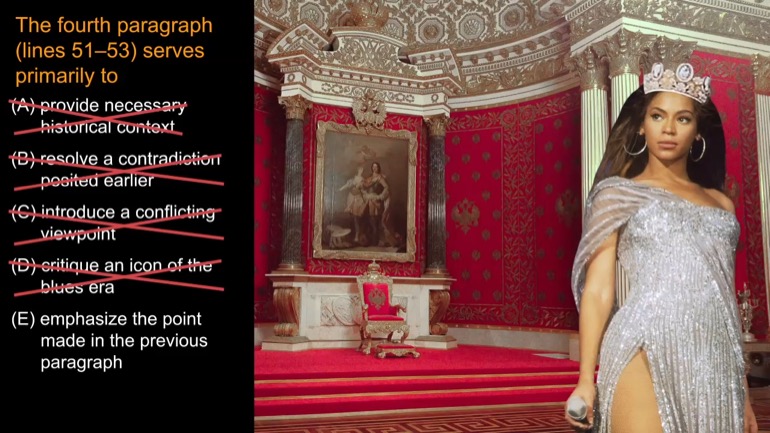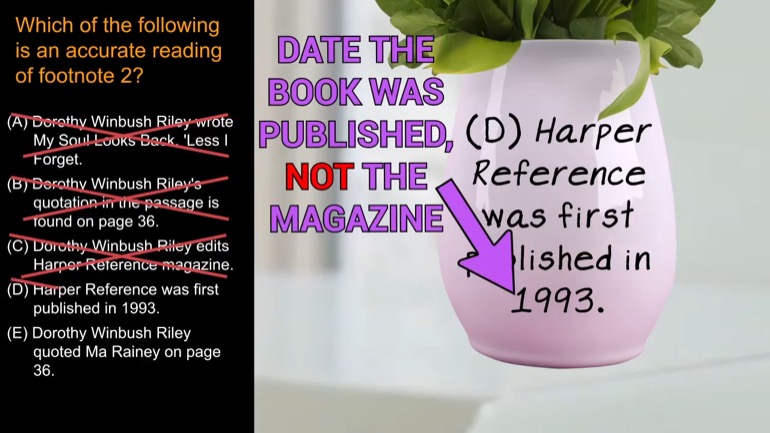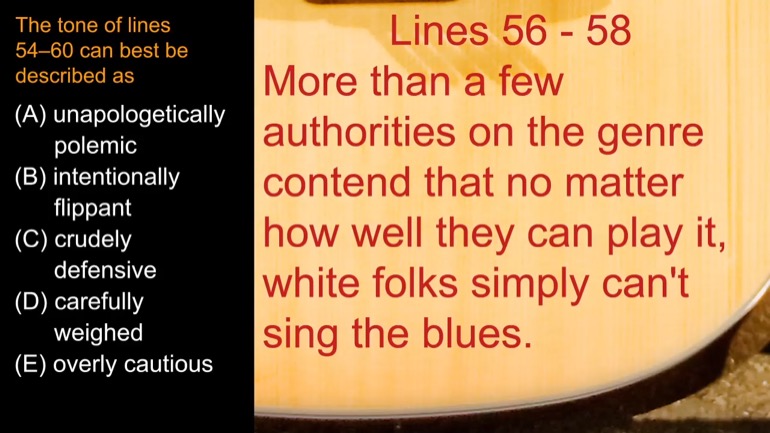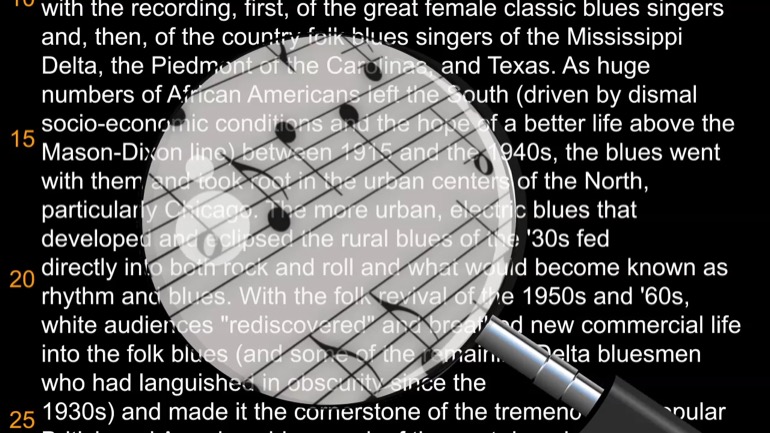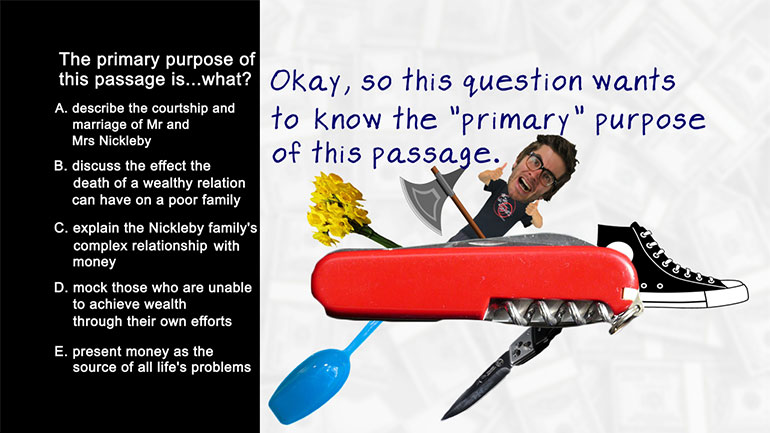ShmoopTube
Where Monty Python meets your 10th grade teacher.
Search Thousands of Shmoop Videos
Passage Drill Videos 141 videos
AP English Language and Composition: Passage Drill Drill 1, Problem 2. What is the speaker's primary purpose in using onomatopoeia in line four?
AP English Language and Composition: Passage Drill Drill 1, Problem 7. What is the principal rhetorical function of paragraphs one to three?
AP English Language and Composition: Passage Drill 1, Problem 8. The quotation marks in the third paragraph chiefly serve to what?
AP English Language and Composition 9.7 Passage Drill 179 Views
Share It!
Description:
AP English Language and Composition 9.7 Passage Drill. What would be the best way to characterize the author's diction in this passage?
Transcript
- 00:03
and here's your shmoop du jour brought to you by tone the world leader
- 00:07
in misunderstandings we've been there take a look at the following passage and [Woman throws clothes out of window]
- 00:11
it's right there we're just gonna skim skim skim and we're skimming alright
- 00:16
what would be the best way to characterize the author's diction in
- 00:19
this passage and here are potential answers all right diction does the
Full Transcript
- 00:26
author use outspoken and forthright diction you could maybe argue that the [Woman laying on a bed]
- 00:29
author is outspoken we know he has no shame about his love of poetry but
- 00:33
outspoken and forthright implies a more direct and straightforward style this [Woman on balcony and man waiting below]
- 00:37
author's language is a little too flowery for this to be our answers Oh
- 00:41
cross out B all right C can we describe the author's diction is familiar in
- 00:44
colloquial well it's important to consider that what was considered [Author ordering food to waiter]
- 00:48
informal language a long time ago might be considered verbose today that being
- 00:53
said even in the context of the 1800s this author is using formal language [Man shrugs shoulders at language]
- 00:56
think of it this way if you are trying to casually explain something to a
- 01:00
friend you would probably not say how did you break representations which
- 01:04
conduct to certain general results or reason is to imagination as the [Woman discussing maths results to boy]
- 01:09
instrument to the agent yeah you wouldn't say that though it's not C
- 01:12
either how about D is the author's diction
- 01:14
ardent and impassioned well it's clear that he strongly believes what he is
- 01:18
writing but the words ardent and impassioned imply a great deal of [Author proposing to woman on a beach]
- 01:21
emotion the writer isn't really appealing to our emotions to make this
- 01:24
argument if you're trying to incite emotion you might go with something more
- 01:28
personal than or he not only B holds intensely the president's it is and [Author turns on flashlight]
- 01:33
discovers those laws according to which present well you get the idea [Person highlighting sentence with yellow marker]
- 01:37
D is out is the author's writing analytical and precise well we don't see
- 01:41
any numbers in the text and the author doesn't provide any data or real-life
- 01:45
example his arguments are more philosophical than analytical which [Man presenting data in conference room]
- 01:48
works when you're discussing poetry but maybe not in the business world so it's
- 01:51
not e so the writers work is formal and expository again this can be hard to
- 01:56
decide when we're dealing with text from a long time ago but even for the time [Man inspecting egyptian symbols]
- 02:00
period this piece is especially formal if we go back to the quote reason is to
- 02:04
imagination as the instrument to the agent we can see the philosophical
- 02:07
seriousness in this approach the language is also expository meaning it
- 02:12
is intended explain describe and inform he's telling
- 02:15
us about poetry as he understands it so a it is hopefully that cleared things up [Woman throwing clothes out of window]
- 02:20
well maybe his next girlfriend will be more forgiving
Related Videos
AP English Language and Composition: Passage Drill Drill 1, Problem 2. What is the speaker's primary purpose in using onomatopoeia in line four?
AP English Literature and Composition 1.1 Passage Drill 7. The primary purpose of this passage is what?
Wishing upon a star may help you pass your AP English Language and Composition test, but answering this question would be a safer bet.
Take a look at this shmoopy question and see if you can figure out which device the speaker employs the most.
Feel like shifting gears and answering a question about shifting tones? We've got you covered. Take a look at this question and see if you can foll...

